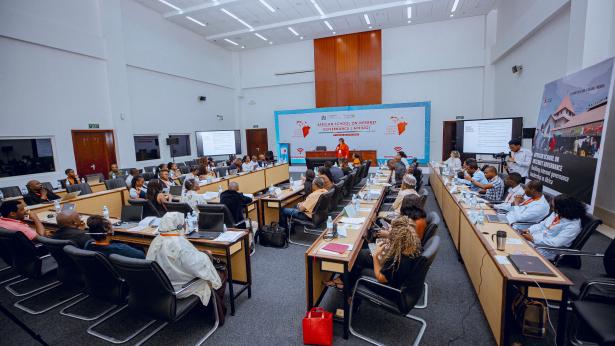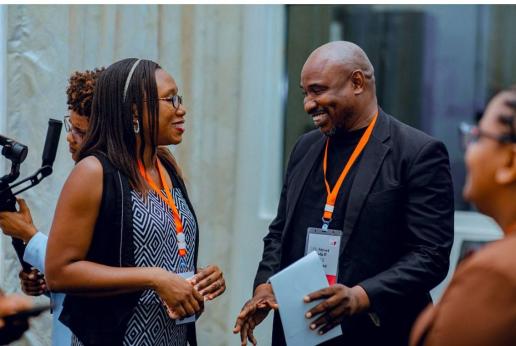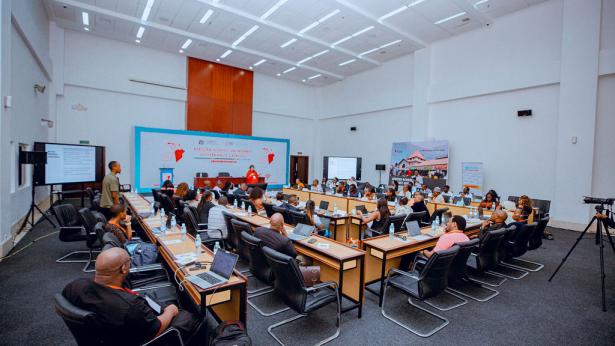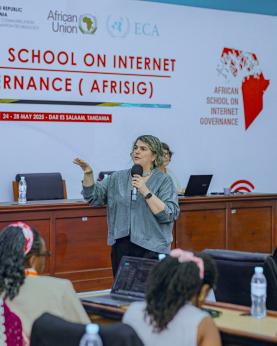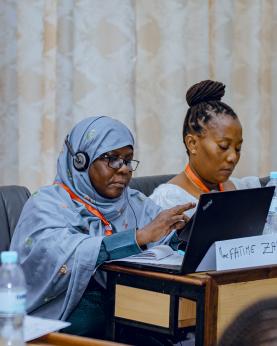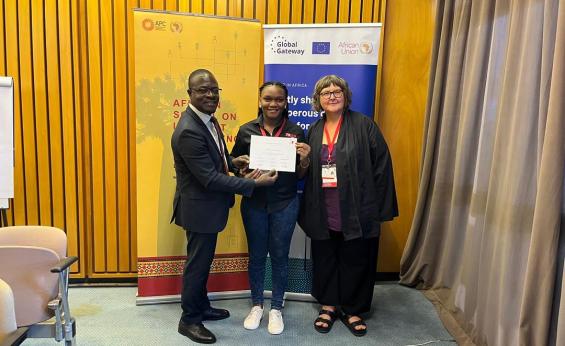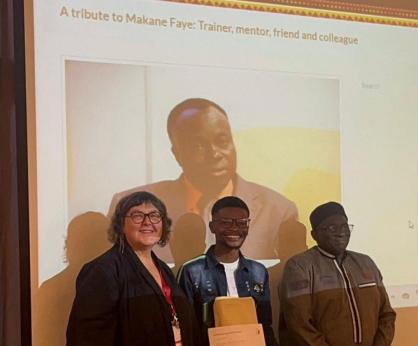This is the third blog in a series examining the Africa Network Information Centre (AFRINIC) situation since 2021, following my earlier analyses, “AFRINIC case narration and the way forward” and “Securing Africa’s digital future: The imperative to reimagine AFRINIC.” With recent developments pointing toward… Read more
Blog
The African Network Information Centre (AFRINIC), the continent’s cornerstone in internet infrastructure, now stands at a breaking point. Governance failures, legal disputes and geopolitical pressures have pushed it toward institutional collapse. To secure Africa’s digital future, a continent-wide recommitment to reform, sovereignty and resilience is urgently needed.
Since its founding in 2005, AFRINIC has played a pivotal role far beyond allocating internet protocol (IP) addresses and number resources. It provides critical internet infrastructure services, including Resource Public… Read more
The 13th African School on Internet Governance (AfriSIG) kicked off at 7:00 pm Tanzanian time on 23 May 2025 with a stylish round of self-introductions by fellows and faculty members from 13 African countries. Over the years, the school has built a solid reputation for producing future advocates of multistakeholder internet governance and for strengthening their capacity across various dimensions of the digital space.
“At the African School on Internet Governance, we choose empowerment and inclusion for all Africans to learn, aspire and act,” said Nkundwe Mwasaga, the director… Read more
I am back from the African School on Internet Governance (AfriSIG) 2025, held at the iconic Julius Nyerere International Convention Centre in the vibrant city of Dar es Salaam in The United Republic of Tanzania, and I can confidently say: my mind is full, my heart is full, and my digital rights advocacy toolkit is bursting!
AfriSIG 2025 was far more than a course. It was a launchpad into Africa’s evolving internet governance community. Every day brought fresh, thought-provoking conversations around AI, data governance, cybersecurity, digital rights and meaningful access. As someone… Read more
Participating in the Africa School on Internet Governance (AfriSIG) 2025 in Dar es Salaam, United Republic of Tanzania, marked a significant milestone in my professional journey as a fraud and cybercrime investigator. The weeklong forum was convened by diverse stakeholders to deliberate on how robust data governance can enable a secure, inclusive and rights-based digital future for Africa.
My contributions focused on bridging the gap between cybersecurity policy, digital rights and investigative practice. I highlighted the pressing need for African countries to harmonise legal… Read more
When I landed in Dar es Salaam in the United Republic of Tanzania) for this year’s African School on Internet Governance (AfriSIG), I was greeted by more than just the humid ocean breeze – there was an immediate sense of warmth that permeated every interaction. From the shuttle driver who patiently showed us places of interest as we drove to the Southern Sun Dar es Salaam, a long-standing hotel deeply invested in the city’s hospitality sector – having been officially opened by President Benjamin Mkapa himself – to fellow participants who shared stories of their home towns over five days of… Read more
It was with great joy that I participated in the 13th training course of the African School on Internet Governance, AfriSIG 2025, held in Dar es Salaam at the Julius Nyérére International Convention Centre (JNICC), United Republic of Tanzania, from 23 to 28 May 2025.
AfriSIG 2025 was an opportunity for me, as a government official, to understand the need for multistakeholder internet governance. The school provides a framework for the exchange of ideas and experiences between countries to enable them guide their telecommunications development strategies and better understand how to… Read more
In the heart of Addis Ababa, Ethiopia, from 14 to 19 November 2024, the African School on Internet Governance (AfriSIG) became a melting pot of ideas, collaboration and strategy, bringing together change makers from across the continent. This was not merely a conference; it was an unparalleled learning and networking opportunity that brought together stakeholders from over 16 African countries. The participants were as diverse as the continent itself, with voices from civil society, the technical community, academia, government, media, the private sector, and even members of parliament −… Read more
When I think of the Africa School on Internet Governance (AfriSIG), I see more than simply an event: I see a turning point moment. It was more than just a programme, it was an opportunity for me to grow, connect, and refine my role in the realm of internet governance.
As a Pan-African Youth Ambassador for Internet Governance (PAYAIG) and an advocate for digital inclusiveness, AfriSIG provided the ideal forum for me to dive more deeper into the convergence of technology, policy and activism. It was more than simply a learning experience, it was a platform for me to elevate my voice… Read more
This year, I had the privilege of participating in the African School on Internet Governance (AfriSIG2024) as a fellow. AfriSIG is a unique platform that brings together stakeholders across Africa to explore and tackle some of the continent’s most pressing internet governance challenges.
AfriSIG 2024 brought together a diverse group of stakeholders, and the discussions were nothing short of amazing. We discussed:
- Data governance and the complex landscape of digital trade and data governance: Exploring the African Continental… Read more



